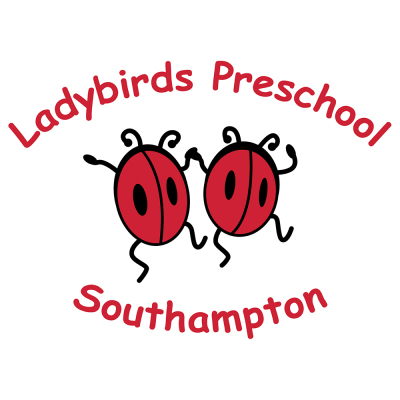Ofsted Report 2022
Inspection of Ladybirds Pre-school (Porchester Road) The Scout Hut, Porchester Road, SOUTHAMPTON SO19 2JB
Inspection date: 8 March 2022
Overall effectiveness Good
The quality of education Good
Behaviour and attitudes Good
Personal development
Good Leadership and management Good
Overall effectiveness at previous inspection Outstanding
What is it like to attend this early years setting?
The provision is good Children are greeted warmly. Staff are friendly, engaging and have deep bonds with children. This helps children feel safe and secure. Staff have high expectations for
children. Children play cooperatively with each other. For example, they push cars back and forth between themselves. Overall, children make good progress. They listen well to staff and have a good
understanding of the boundaries. Children are repeatedly read to. They have favourite stories and they retell parts of the story confidently. Children bring their love of stories into their play. For
instance, they look for snail shells out in the garden for 'Norman the slug' as they recreate the story. Children replicate their experiences in their play. For example, children set up a 'picnic'
and use bean bags as 'crisp packets'. They expertly model the skills they have learned during lunchtimes. On this occasion, children demonstrate how to open the 'crisp packets' with a pinching
movement. Children have good understanding of how to keep themselves healthy. With adult support, they wipe their noses and wash their hands. Children have plenty of access to drinking water.
Children know to put their empty cups into the bowl when they have finished. They take part in regular movement activities, such as yoga. This helps children build the skills they need for
self-regulation.
What does the early years setting do well and what does it need to do better?
Staff have a good understanding about what they want children to learn. They also know what children can already do through regular discussion and observations. They use this knowledge to
effectively build on children's learning and development. The manager frequently undertakes research to further extend her own professional development. The manager uses what she has learned to
support children in their learning. For example, she focuses on teaching children to sit comfortably when they join in big group activities as she believes this will increase their concentration. The
manager is passionate and determined that children with special educational needs and/or disabilities (SEND) will receive the support they need from outside agencies. She ensures that referrals are
made in a timely manner. She provides extensive information to support each referral. Children are independent. They learn the skills needed through everyday routines. Children take off their
own shoes and can put them back on when needed. They try and open their food packets during lunch. Children are praised frequently for their efforts. Staff support children's language development
well. This is through gentle repetition of key words. Staff also repeat words back to children clearly as they play together. Staff demonstrate they listen to children well. They repeat back
their understanding of children's thoughts and views regularly. n The manager devises strategies to support children with SEND; for example, the use of targeted adult support and the use of
non-verbal language, such as signing. However, these strategies are not always implemented consistently by staff. This means that children's experiences may differ depending on the knowledge or
experience of staff. Children are respected and their views valued. Children enjoy choosing the song for the morning group time and staff listen to their choice. Staff ask children before attending
to their personal care. For example, staff ask children before they change their nappy. Parents speak incredibly highly of the communication they receive. They talk avidly about the support they
receive from staff. Staff share ideas frequently to support children with their learning at home. This also includes the provision of resources, such as play dough. Children learn about a range of
cultures and languages through their peers. They are excited to read books and use resources with characters that look like them. The manager celebrates everybody's culture as part of the curriculum.
Children in receipt of additional funding make good progress. Staff use funding well to provide children with learning experiences that further support their learning and development. For example,
staff provide story sacks and books for children to take home. The manager supports staff well. Staff regularly have supervision meetings to discuss their workloads and well-being. Staff comment
positively on the support they receive. The manager enables staff to undertake training courses to further their professional development.
Safeguarding
The arrangements for safeguarding are effective.
The manager has a good understanding of her responsibilities as the lead for safeguarding. Staff know the signs and symptoms that may indicate that a child is at risk from harm. They are
clear on the process to follow should a referral to outside agencies be needed. This includes when to make a referral. Staff have a good understanding of whistle-blowing and how to contact the local
safeguarding partners, if necessary. Staff effectively demonstrate their knowledge of wider issues, such as radicalisation. They carry out regular risk assessments to ensure that any hazards are
removed or minimised. For example, sand is regularly swept up.
What does the setting need to do to improve?
To further improve the quality of the early years provision, the provider should:
To strengthen the quality of education even further, with emphasis on developing staff's implementation of strategies in place to support children with SEND.
www.ofsted.gov.uk/reports

